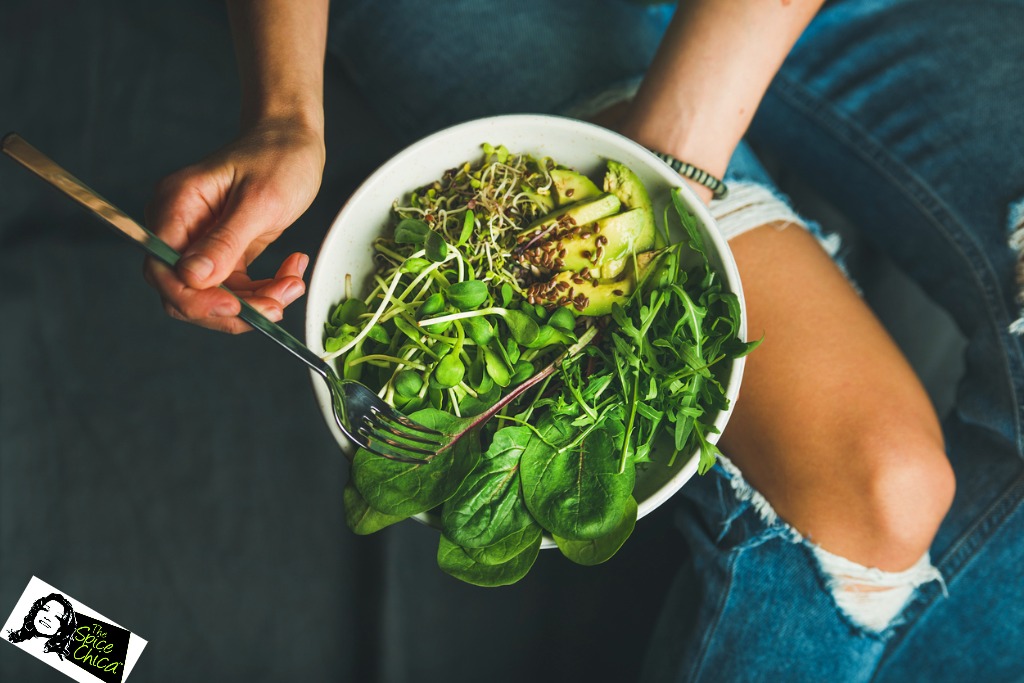1. You’re probably not getting enough
You’re aiming for around 5-7 serves of vegetables per day, with a serve being around 75 g.
2. Green vegetables are alkalising
Your body needs to maintain the pH level of your blood at a very specific level for optimal wellbeing.
All of the different foods that we eat have the potential to either be acid-forming, alkaline-forming or neutral once they are metabolised by the body.Consuming too many acid-forming foods may lead to metabolic acidosis.Happily green veggies like fennel, kale, celery, and Brussels sprouts all have an alkaline effect on the body.
3. Greens are full of fibre
Fibre is derived from the indigestible parts or compounds of plants, and is needed to help keep your digestive system healthy.Greens that pack a fibre-filled punch include artichokes, endive, fennel, broccoli, Brussels sprouts, and spinach.
4. They give you energy
Green veggies like broccoli and kale are a good source of vitamin C.
Vitamin C is needed for the body to make carnitine – which transports fatty acids into cells to be used as a source of energy in a process is known as ‘fat oxidation’.
Green leafy vegetables are good sources of some of the B vitamins:
Folate
Asparagus, spinach, broccoli and kale, are good sources of folate. Folate is needed by your body for healthy cell division, and DNA synthesis.
Riboflavin
Vitamin B2 is needed for energy production and skin health can be found in leafy green vegetables like asparagus, dandelion greens and broccoli.
Vitamin B6
Is needed for protein and carbohydrate metabolism and can be found in spinach, kale, cabbage and broccoli.
6. Green veggies are good for your eyes
Green veggies like spinach and kale are a good source of lutein.
Lutein is a powerful antioxidant, which may help to protect the lens of the eye from UV radiation.
7. Nature’s healthy cocktail
Green veggies contain a mixture of phytochemicals – including carotenes, chlorophyll, flavonoids, and enzymes.
The phytochemicals play roles as antioxidants, support immune functions and aid detoxification in the body.


